Imagine being awakened one morning by a severe knocking at your front door, the one that’s always locked because you go out through the garage door most often. You pull on something resembling pants and a t-shirt and grouse on your way to the door, wondering who in their right mind would be knocking on your door, especially when you have a fucking doorbell. Your mind rattles off a list of emergencies that would warrant this level of intrusion: the house is on fire and you’ve yet to realize it; your in-laws died (yay!); your parents died (boo!); one of your kids snuck off with the car; your neighbor’s daughter is pregnant and says your son is the father … The list goes on as you fumble to get all the locks unlocked. Then, just as you’re unlocking the last lock, the door smashes in on top of you as a paramilitary assault team, all dressed in black with their faces covered, knocks down the door with a battering ram. Guns and flashlights are focused on you. You can’t see. You can barely breathe. You’re fairly sure there’s a piece of the door lodged in your arm. Adamantly, you ask, “What the fuck is going on here? What do you think you’re doing?”
The officer in charge calls you by name and says, “You’re under arrest according to the National NarcoTerror Prohibition Law for associating with a narcoterrorist yesterday.”
You struggle to think about what you did yesterday that might have put you in accidental contact with a narcoterrorist. You can’t think of anything. “Who?” you ask. You think, maybe, you were overcharged for your groceries, and your complaint got you into some kind of trouble. The agent says, “You ordered a pizza last night, didn’t you?”
The legal architecture to make this terrifying fiction a reality is being actively circulated at the highest levels of the U.S. government. A draft Authorization for Use of Military Force (AUMF), quietly passed between the White House and Capitol Hill, seeks to grant the President the sweeping, unilateral power to wage a new kind of forever war. It is a document that would authorize the President to use military force against any drug cartel he deems to be a “terrorist” organization, against any person he deems to have “aided” them, and, most terrifyingly, against any sovereign nation he claims has “harbored” them.
Legal experts who have seen the proposal are aghast. Jack Goldsmith, a Harvard Law professor and a former senior Justice Department official in the George W. Bush administration—a man who is no stranger to the legal contortions of executive power in the name of national security—described the draft as “insanely broad” and a “blank check.” His alarm signals not a partisan critique, but a profound concern from within the conservative legal establishment that a fundamental line is being crossed. “This is an open-ended war authorization against an untold number of countries, organizations and persons that the president could deem within its scope,” he warned. It is a proposal modeled on the 2001 AUMF that gave birth to two decades of forever wars in the Middle East, but it is potentially even more expansive, granting the executive the power to wage war not just in a specific region, but anywhere on the planet, including within the borders of the United States itself.
This legislative power grab is not happening in a vacuum. It is a direct attempt to provide a legal fig leaf for a military campaign that is already underway and is, by most expert accounts, illegal. The President has claimed the constitutional authority as Commander in Chief to order the U.S. Navy to conduct extrajudicial killings of suspected “narco-terrorists” on the high seas. In recent weeks, at least two boats in the Caribbean have been destroyed by U.S. military strikes, killing more than a dozen people. And just this morning, a fourth boat was reportedly sunk in international waters. The administration has justified these actions as “homeland defense,” explicitly equating the targets with members of al Qaeda and ISIS in an attempt to cloak a new conflict in the moral authority of the post-9/11 era.
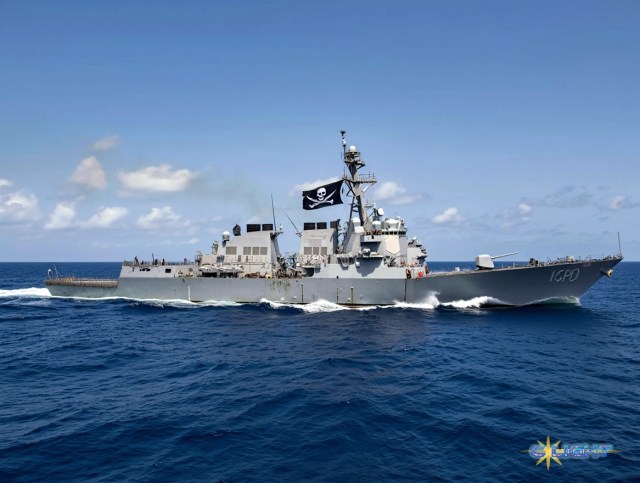
On-the-ground reporting from the region, however, reveals a starkly different and far more tragic reality. The targets of these sophisticated military strikes are not international terrorist kingpins commanding a fleet of warships. They are, according to local sources in Venezuela, “small-scale fishermen — and now small-scale drug traffickers,” driven into the illicit trade by a decade of economic collapse and profound desperation. As one resident of the Paria Peninsula lamented, in a country where the socialist revolution has failed and there is only “hunger, sacrifice, pure pain,” the choice is often between poverty and illicit trade. Experts have confirmed that the small fishing boats being used, known as “peñeros,” lack the capability to even make the journey to the United States, completely dismantling the administration’s pretext of an “imminent threat” to the homeland. The administration is not fighting a war; it is conducting a massacre of the desperate.
This is the sinister context in which the draft AUMF must be understood. It is a piece of legislation designed to retroactively legalize a campaign of extrajudicial killing against impoverished fishermen, all while granting the President the authority to expand that war to any country he chooses, for any reason he deems fit. The deliberately vague language—targeting those who “aid” or “harbor” designated groups—is a feature, not a bug. It is a tool designed to be weaponized against anyone, including American citizens. It is the legal foundation that turns the fictional raid on a suburban home into a plausible future. This is not a foreign policy document; it is the blueprint for a dictatorship.
II
The fatal flaw in any purely narcissistic worldview is the failure to imagine a world that does not revolve around oneself. The administration’s proposed Authorization for Use of Military Force (AUMF) is a document born of such a solipsistic fantasy—a belief that the United States can declare a unilateral, open-ended war on a sovereign nation and its people, and the rest of the world will simply stand aside and watch. This is a profound and dangerous miscalculation. The President’s domestic power grab is on a collision course with a complex, cynical, and multipolar world that has its own interests, its own alliances, and its own weapons—both military and economic—to bring to bear. An American war on Venezuela would not be a clean, surgical strike; it would be the pulling of a loose thread that could unravel the entire fabric of global stability.

The most immediate and cynical complication comes from the very power the administration purports to oppose: Russia. For Vladimir Putin, Venezuela is a useful, but ultimately disposable, strategic asset—a thorn in America’s side, a forward operating base for intelligence and influence in the Western Hemisphere. His primary, legacy-defining, and existential conflict, however, is in Ukraine. This creates the perfect conditions for a classic, cold-blooded “Great Power” bargain. The deal, whispered in back channels and sealed with a handshake in a neutral capital, would be brutally simple: Russia agrees to provide no military support, no advanced weaponry, and no intelligence assistance to Venezuela, giving the United States a free hand to conduct its Caribbean crusade. In exchange, the U.S. completely cuts off the flow of military and financial aid to Ukraine, removing its primary obstacle and effectively handing Putin his victory. For two transactional leaders, it is a perfect, if loathsome, piece of political calculus, allowing each to achieve his primary objective by sacrificing a secondary one. The cost, paid in Ukrainian blood and the shattering of the NATO alliance, would be of little consequence.
This tidy, cynical deal, however, is complicated by other global powers who have no interest in seeing either the U.S. or Russia achieve an easy victory. China, Venezuela’s largest creditor, views the nation not through a lens of ideology, but as a massive, oil-backed investment on its global balance sheet. Beijing has loaned the country tens of billions of dollars, and a U.S. military intervention that threatens its ability to recoup that investment or secure a stable flow of resources would be met with a swift and powerful economic response. As the largest foreign holder of U.S. debt, China possesses a financial “nuclear option.” A sudden, large-scale sell-off of U.S. Treasury bonds would send shockwaves through global financial markets, potentially causing a spike in U.S. interest rates and destabilizing the American economy. The threat alone would be a powerful tool of coercion, a reminder that the wars of the 21st century are fought not just with missiles, but with monetary policy.
While China would fight with finance, Iran would fight with fire. Bound to Caracas by a shared anti-American ideology, Tehran would see a U.S. attack on Venezuela as an attack on a key ally. Iran has already provided Venezuela with crucial support in evading sanctions and has supplied military hardware. In the event of a conflict, they would almost certainly escalate, supplying the Venezuelan military with their signature tools of asymmetric warfare: swarms of cheap but effective attack drones and a fleet of small, fast-attack boats designed to overwhelm the sophisticated defenses of U.S. warships. The goal would be to turn the Venezuelan coast into a bloody quagmire, a proxy war designed to bleed American military resources and morale.
Closer to home, the administration’s actions would ignite a firestorm of opposition. Mexico would view an attack on Venezuela as a direct, existential threat. The “narco-terrorist” label is dangerously portable, and the Mexican government knows that the same justification used to launch strikes in the Caribbean could be instantly applied to cartel activity within its own borders. A U.S. war in Venezuela is not a distant conflict; it is a terrifying preview of what could happen to them next. While Mexico cannot compete militarily, it holds powerful asymmetric levers. It could halt all security and intelligence cooperation, effectively blinding U.S. counter-narcotics efforts. It could relax its own immigration enforcement, weaponizing migration to create a humanitarian and political crisis on the U.S. southern border. And it could create significant economic friction, slow-walking inspections and launching trade disputes that would cause immense pain for key sectors of the American economy.
The most unexpected and perhaps most effective opposition, however, might come from America’s traditional allies. The United Kingdom, a key NATO partner, has a profound and explosive interest in the region: Guyana. A former British colony and a key member of the Commonwealth, Guyana is home to one of the largest offshore oil discoveries in modern history. The problem is that Venezuela has a long-standing, aggressive territorial claim on two-thirds of Guyana’s entire territory—including those massive oil fields. The UK is Guyana’s primary security guarantor and has already deployed warships to the region to deter Venezuelan aggression. A U.S. military campaign that destabilizes the region would be seen by London as a direct threat to its partner and its immense economic and security interests. The UK would be forced to intervene to protect Guyana, creating a diplomatic and military nightmare for the White House as two major NATO allies operate in the same crowded theater with conflicting objectives.
This European opposition would likely be led by a newly assertive Germany. No longer a passive player, the German government has shown little deference to the administration and has its own pragmatic interests in Venezuelan oil and regional stability. It is entirely plausible that Germany could lead a European bloc to offer a diplomatic “third way”—a package of sanctions relief and investment in exchange for democratic reforms—that would directly undermine the U.S. military-first approach.
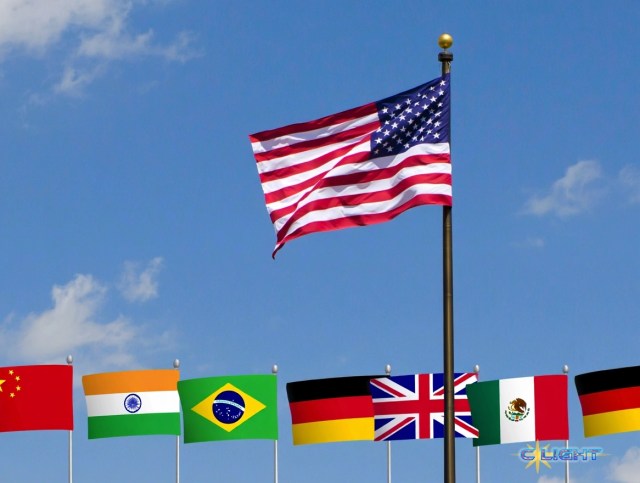
Finally, the opposition would extend across Asia. Japan, a nation whose entire economic existence depends on a stable, rules-based maritime order, would view the U.S. action as a terrifying precedent that China could easily emulate in the South China Sea. India, a leader of the Global South and a key member of the BRICS+ alliance (which now includes Venezuela), would see the attack as a direct assault on its vision of a multipolar world. The existing trade friction between Prime Minister Modi and the President would only fuel India’s resolve to lead a global diplomatic coalition to condemn the U.S. intervention as an act of neocolonialism.
The President’s threat, therefore, is not a simple foreign policy decision. It is a reckless gamble that ignores the complex, interlocking interests of a world that no longer marches in lockstep with Washington. An attack on Venezuela would leave the United States diplomatically isolated, economically vulnerable, and potentially bogged down in a multi-front proxy war. It is a plan conceived in a domestic political echo chamber, and it is destined to shatter upon contact with a world of consequence.
III
While the world calculates its response to a newly aggressive and unpredictable America, the most immediate and volatile front in this crisis is not in the Caribbean Sea or the halls of the United Nations, but within the borders of the United States itself. The President’s gambit for a “blank check” to wage war is predicated on a profound misreading of the American people, a nation deeply scarred by past deceptions and more divided than at any point since the Civil War. The administration is not operating from a position of strength and unity, as the Bush administration was after 9/11; it is operating from a position of profound political weakness and public distrust, and that changes everything. The international stage is a powder keg, but the domestic front is a tinderbox, and the President is holding a lit match.
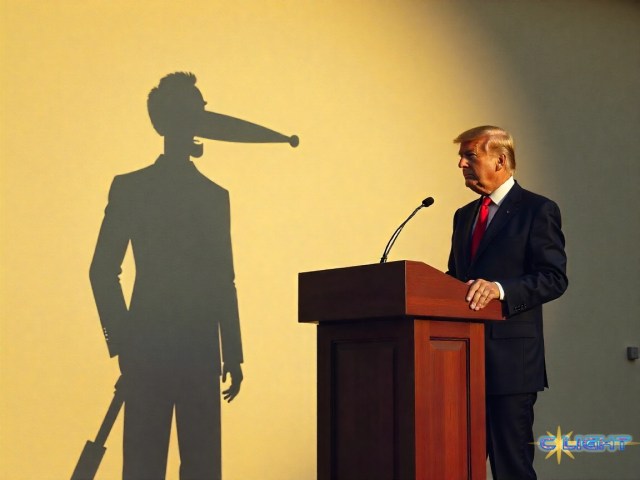
The key to understanding the public mood is the ghost of a previous war, one sold to the American people on a lie. The “rally ’round the flag” effect that gave President George W. Bush near-universal support for the invasion of Iraq is dead, and its ghost was buried in the sands of Mesopotamia alongside the non-existent Weapons of Mass Destruction. That conflict created a generational, almost allergic, public reaction to wars based on secret intelligence and vague threats. The idea that the American public, and especially a newly energized press, would simply accept the administration’s claims about “narco-terrorists” on fishing boats without seeing, as you so aptly put it, “some receipts,” is a fantasy. The skepticism that was once the domain of a few lone dissenters like Senator Bernie Sanders is now a mainstream political reflex. The president would face an immediate and ferocious demand for proof from a public and a Congress that have learned the hard way not to grant their blind trust. We have seen this movie before, and we know how it ends: in a bloody, costly quagmire that shatters the nation’s credibility and morale.
This deep-seated public skepticism creates a dangerous paradox for a president with historically low approval ratings. A leader in such a position might be tempted to “wag the dog”—to start a foreign conflict to distract from domestic problems and create a patriotic rally. But in this hyper-polarized environment, that strategy is a trap. An energized opposition, already primed by years of perceived abuses of power, would not see a war in Venezuela as a defense of the nation. It would be seen, from day one, as a desperate, cynical, and impeachable abuse of power designed to change the political narrative. Instead of a unifying distraction, the war would become the ultimate domestic political firestorm, burying the White House in legal challenges, congressional investigations, and massive public protests.
This leads to the most dangerous variable on the table, a terrifyingly plausible endgame for an administration that feels itself cornered. The President has already signaled a potential desire to remain in office beyond his constitutional term, most notably through the casual display of “Trump 28” merchandise to other world leaders. This raises the specter of a doomsday scenario, a self-fulfilling prophecy of authoritarianism. First, the “wag the dog” war is launched to boost popularity. Second, due to public skepticism and fierce political opposition, the war backfires and becomes a “Vietnam-styled” quagmire, further cratering the president’s approval ratings. Finally, faced with certain electoral defeat and potential legal consequences, the administration could then use the ongoing “national emergency” of the war itself as the pretext to seize extraordinary powers and attempt to postpone or cancel the upcoming election. It is a path where a desperate political gamble escalates into a full-blown constitutional crisis.
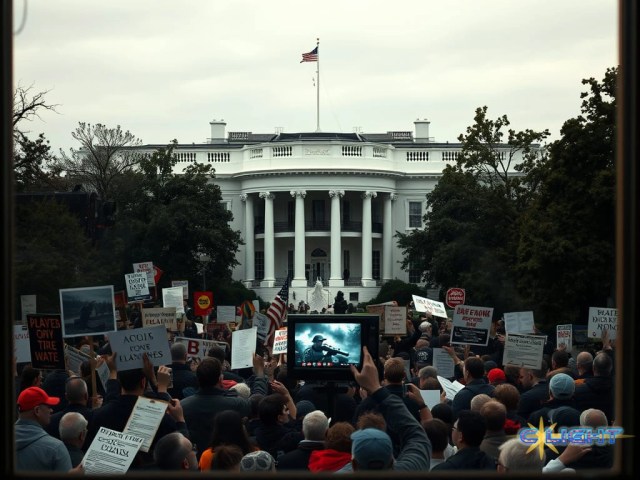
Compounding this danger is the utter paralysis of the one institution designed to prevent such an abuse of power: the U.S. Congress. The legislative branch, which holds the sole constitutional authority to declare war, is currently a dysfunctional mess, consumed by partisan infighting and a crisis of leadership. It has proven itself incapable of acting as an effective check on a runaway executive. This impotence creates a power vacuum that the President is more than willing to fill.
And haunting this entire domestic political drama is the ghost at the feast: the unresolved scandal of the President’s connections to the late, disgraced financier Jeffrey Epstein. While there is no direct, causal link between this scandal and a war in Venezuela, it is the cultural wallpaper of this new Gilded Age. It is the ultimate symbol of the elite decadence, corruption, and impunity that has annihilated public trust. How can an administration mired in a scandal of such moral rot ask the American people to sacrifice their sons and daughters in a new war based on secret intelligence? The very presence of the Epstein issue makes any call to arms from this White House sound hollow and self-serving. It is the dark joke at the heart of this tragedy: one of the biggest impediments to the President successfully launching a “wag the dog” war might be that the public is already convinced the dog is irredeemably sick.
IV
In a functioning democratic republic, the scenarios outlined in the preceding sections would be impossible, checked and balanced into oblivion by the institutional guardrails designed for that very purpose. A co-equal legislative branch would assert its sole authority to declare war, shutting down any executive attempt to launch a unilateral military campaign. A Supreme Court, acting as the ultimate arbiter of the law, would strike down any flagrantly unconstitutional power grabs. And a shared, trusted set of facts and data would provide a common ground for public debate and political accountability. But we do not live in a functioning democratic republic. We live in a nation where every one of those guardrails has been systematically dismantled, either through deliberate sabotage or a terminal decay of political will. The result is a nation teetering on the brink, facing a crisis where the very mechanisms of self-correction have failed, leaving us on a perilous and untested ground from which we may not recover.

The primary check on a runaway executive, the U.S. Congress, has been rendered utterly impotent. It is a body that is, at present, functionally leaderless, consumed by performative outrage and partisan infighting, and incapable of accomplishing even its most basic duties, let alone confronting a constitutional crisis. While the President threatens a government shutdown to paralyze oversight, and his allies draft legislation to grant him the powers of a king, the halls of Congress are filled with the babble of intra-party squabbles and a complete absence of a unified, principled response. They have become spectators to their own obsolescence, a tragicomedy of a co-equal branch that has abdicated its power.
The judicial check, once seen as the final backstop against tyranny, has been compromised from within. The Supreme Court’s recent, disastrous ruling granting a form of presidential immunity has sent a clear signal that the executive will not be held to the same standard of law as an ordinary citizen. This has created a permission structure for the very abuses of power we are now witnessing. When the President believes he can order the military to act as his personal hit squad on the high seas, it is a direct consequence of a court that has signaled he is, in some fundamental way, above the law.
The most profound failure, however, is the collapse of a shared, objective reality. As the government’s own economic data becomes increasingly unreliable, and its own scientific reports on domestic extremism are quietly scrubbed from websites, we are left in a “post-truth” environment by design. When there is no common set of facts, there can be no common ground for debate. The vacuum is filled by raw power and political narrative. This is the fertile ground in which authoritarianism grows, a world where the President can justify a war based on a threat he has invented, safe in the knowledge that the official data to contradict him has been either discredited or disappeared.
Into this void of institutional failure and informational chaos steps a President who is not just testing the limits of his power, but is actively signaling his intent to shatter them entirely. The casual display of “Trump 28” merchandise is not a joke; it is a trial balloon for a third term, a blatant disregard for the constitutional limits that have bound every president for over 70 years. This raises the ultimate, terrifying question: will a president who has shown such contempt for the rule of law allow a free and fair election to remove him from power?
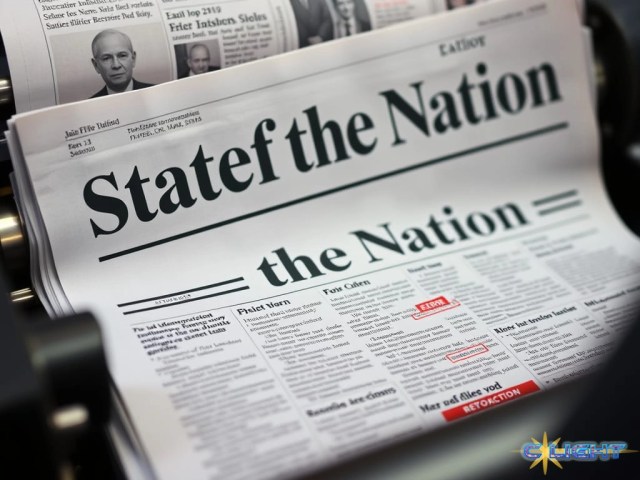
The mechanisms to subvert that election are already in place. The filibuster, a tool of minority obstruction, remains a significant barrier to passing federal voting rights legislation. Gerrymandering has created a landscape of uncompetitive districts that insulate politicians from the will of the people. And now, the potential for a “wag the dog” war in Venezuela creates the ultimate pretext. A nation in the midst of a difficult, Vietnam-style conflict is a nation in a state of “emergency,” a state in which a leader might argue that a presidential election is a dangerous distraction that simply cannot be afforded.
We are on shaky, untested ground. The American system of government is predicated on a series of norms, guardrails, and a shared commitment to the peaceful transfer of power. All of these are now under direct assault. The coming months will be a test of whether the remnants of our democratic institutions can withstand the strain, or whether they will finally buckle under the weight of a leader who views them not as sacred trusts, but as inconvenient obstacles. If we, as a nation, make a mistake here, if we fail to recognize the gravity of this moment and act to restore the checks and balances that have protected us, the United States as we have known it may not exist by 2028. The architecture of a dictatorship is being drafted in plain sight. The only question is whether we will allow it to be built.
Discover more from Clight Morning Analysis
Subscribe to get the latest posts sent to your email.










